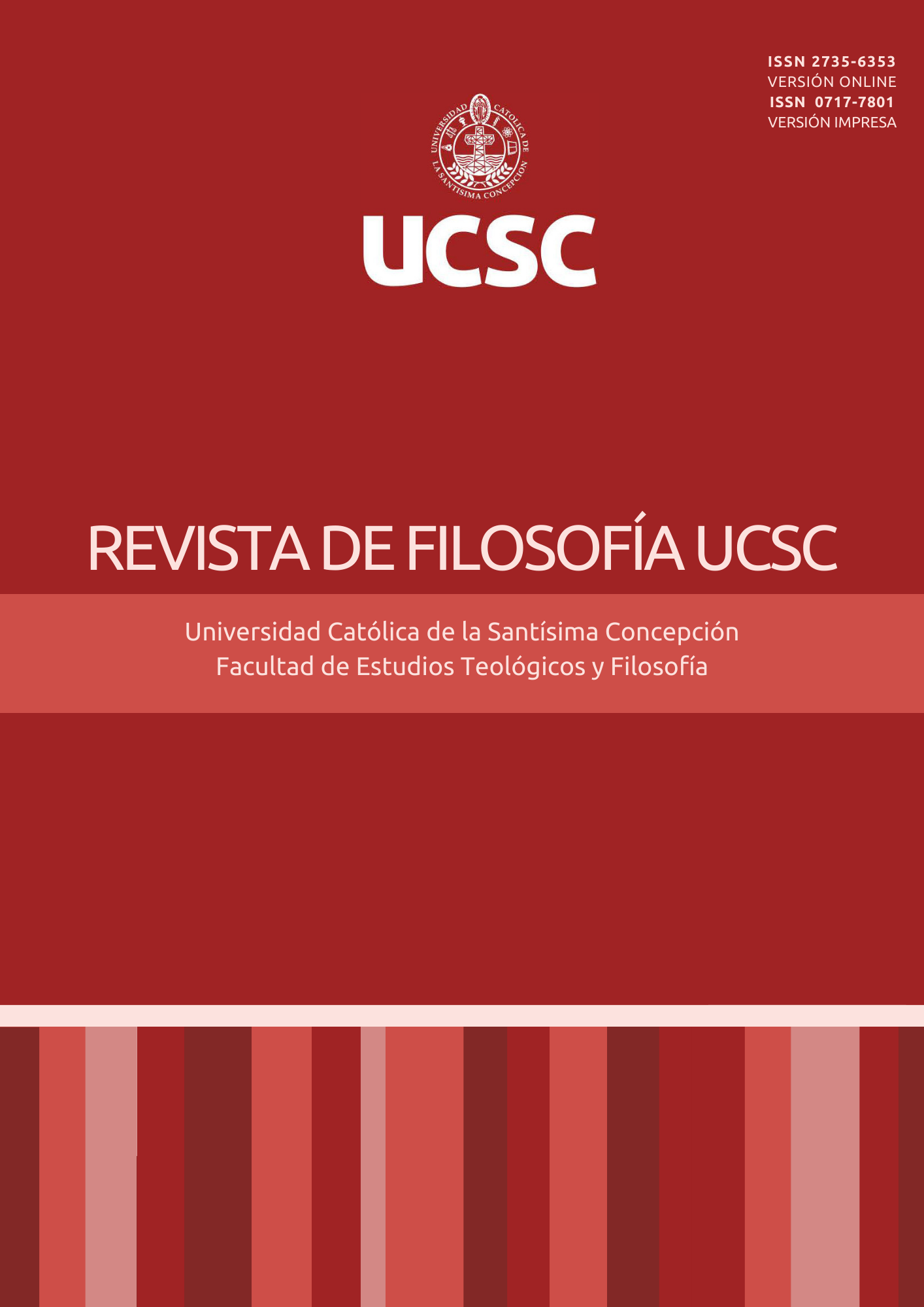Idealismo trascendental e historicidad según Husserl: Lectura de los § 1 a 15 de la Krisis de Husserl
Contenido principal del artículo
Resumen
El artículo explora la concepción husserliana de la historicidad en el contexto del idealismo trascendental, basado en los primeros 15 párrafos de la Krisis. Husserl reconfigura la subjetividad trascendental incorporando la historicidad como un componente esencial de la autoconciencia y la intersubjetividad. El texto aborda las aporías filosóficas que surgen al intentar reconciliar la teleología con la facticidad histórica, y cómo la experiencia del mal se convierte en un catalizador para la reflexión teleológica. Se examina también la distinción entre temporalidad e historicidad, y se reflexiona sobre la crítica al etnocentrismo husserliano y su perspectiva teleológica. Finalmente, se analiza la responsabilidad filosófica de enfrentar la crisis de la modernidad, proponiendo una visión de la historia como una tarea colectiva y generativa.
Detalles del artículo
Sección

Esta obra está bajo una licencia internacional Creative Commons Atribución-NoComercial 4.0.
La Revista de Filosofía UCSC es de acceso abierto y no cobra por publicar en ella. Además, regula su política de Derechos de Autor y de acceso a sus archivos de acuerdo con la Licencia Pública Attribution-NonCommercial 4.0 International (CC BY-NC 4.0), por tanto, se permite compartir (reproducir y distribuir el material en cualquier medio o formato) y adaptar (modificar, transformar y crear a partir del material) siempre y cuando se de crédito adecuadamente, se incluya la cita con los datos correspondientes. Además, no está permitido utilizar el material con fines lucrativos.
Cómo citar
Referencias
Chrétien, J.-L. (2007). Répondre. Figures de la réponse et de la responsabilité. PUF. DOI: https://doi.org/10.3917/puf.chre.2007.01
Fagniez, G. (2019). Comprendre l’historicité: Heidegger et Dilthey. Hermann.
Farges, J. (2015). Husserl et la grande guerre: l’irruption critique de l’histoire dans la phénoménologie. Transversalités, 132, 43-59. DOI: https://doi.org/10.3917/trans.132.0043
Housset, E. (1997). Personne et sujet selon Husserl. PUF. DOI: https://doi.org/10.3917/puf.houss.1997.01
Housset, E. (2010). Husserl et l’idée de Dieu. Cerf.
Husserl, E. (1956). Erste Philosophie. Band 1, Kritische Ideengeschichte. Husserliana VII (R. Boehm, Ed.). Nijhoff.
Husserl, E. (1973a). Die Idee der Phänomenologie. Vorlesung II. Husserliana II (W. Biemel, Ed.). Nijhoff. DOI: https://doi.org/10.1007/978-94-010-2480-8
Husserl, E. (1973b). Cartesianische Méditationen. Husserliana I (S. Strasser, Ed.). Nijhoff.
Husserl, E. (1976). Die Krisis der europäischen Wissenschaften und die transzendentale Phänomenologie. Husserliana VI (W. Biemel, Ed.). Nijhoff. DOI: https://doi.org/10.1007/978-94-010-1335-2
(Traducción al francés: Granel, G. (1976). La crise des sciences européennes et la phénoménologie transcendantale. Gallimard).
Husserl, E. (1987). Philosophie als strenge Wissenschaft. In Aufsätze und Vorträge (1911-1921). Husserliana XXV (T. Nenon & H. R. Sepp, Eds.). Nijhoff. DOI: https://doi.org/10.1007/978-94-009-4349-0
Husserl, E. (2008). Die Lebenswelt. Auslegungen der vorgegebenen Welt und ihrer Konstitution. Texte aus dem Nachlass (1916-1937), Husserliana XXXIX (R. Sowa, Ed.). Springer.
Lacoste, J.-Y. (2024). Le différend du temps et de l’histoire. PUF.
Lanord, H.-F., & Housset, E. (Eds.). (2022). Patočka, la vie du monde. Cahiers de philosophie de l’université de Caen, n°59. PUC. DOI: https://doi.org/10.4000/cpuc.1697
Nabert, J. (1970). Essai sur le mal. Aubier.
Porée, J. (1993). La philosophie à l’épreuve du mal. Pour une phénoménologie de la souffrance. Vrin.
Pradelle, D. (2012). Par-delà la révolution copernicienne. Sujet transcendantal et facultés chez Kant et Husserl. PUF. DOI: https://doi.org/10.3917/puf.prade.2012.01
Pradelle, D. (2013). Généalogie de la raison. Essai sur l’historicité du sujet transcendantal de Kant à Heidegger. PUF. DOI: https://doi.org/10.3917/puf.prade.2013.01
Pradelle, D. (2020). Intuitions et idéalités. Phénoménologie des objets mathématiques. PUF.
Ricoeur, P. (2004). Le mal. Un défi à la philosophie et à la théologie. Labor et Fides.
Serban, C. (2016). Phénoménologie de la possibilité. Husserl et Heidegger. PUF. DOI: https://doi.org/10.3917/puf.serba.2016.03
Souche-Dagues, D. (1972). Le développement de l’intentionnalité dans la phénoménologie husserlienne. Nijhoff.




